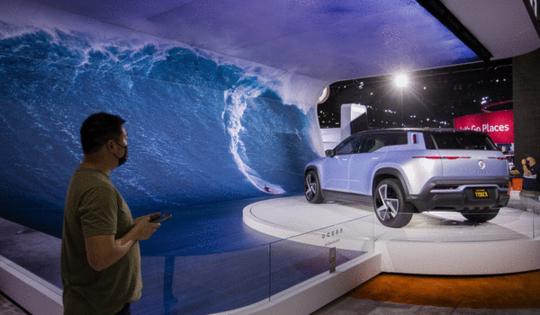Fisker had big dreams to compete with Tesla. What went wrong?
Published in Automotive News
A decade ago, respected automobile designer Henrik Fisker was coming off the bankruptcy of his first car company when he contemplated his comeback. Instead of a luxury hybrid sedan, what he envisioned was an all-electric SUV that would appeal to the masses with its lower price and California beach-inspired design.
The Danish native put the car on the road last year, when his new Manhattan Beach, California, company, Fisker Inc., released the Ocean. The midsize crossover features a full-length solar roof, an interior composed of "vegan" recycled plastic and a drop-down rear window that can fit a surf board. Starting price of the base model: $38,999.
The vehicle gathered design awards and the company initially projected it would make as many as 42,400 vehicles in its first year. Instead, Fisker produced just 10,193 vehicles at its contract manufacturing plant and delivered 4,929 vehicles — racking up sales of $273 million, but losing $762 million in 2023.
More signs of distress emerged in recent weeks as Fisker announced it was cutting 15% of its 1,200-person workforce, halting production for six weeks and working on a deal for $150 million in new financing, dependent on forging a strategic relationship with a major auto manufacturer.
On Monday, the company said talks for a strategic tie-up had not proved fruitful and the New York Stock Exchange moved to delist its stock, which collapsed and closed Wednesday at 2 cents per share. Fisker reiterated a warning it made last month: that it might be forced to file for bankruptcy protection.
What went wrong? Multiple factors contributed to the company's fall, analysts said, including the challenges of starting an auto company from scratch, fierce competition in the EV market and production difficulties with its flagship Ocean SUV.
"When you are trying to start a car company, it is really, really hard," said Karl Brauer, executive analyst at iSeeCars.com, an automotive research website. "It's a capital-intensive business and you have to go up against all these established players to successfully produce a car at a volume rate and at a price that makes you money."
A spokesperson for the company declined to comment and said Fisker was not available.
Fisker isn't the only EV startup that has been struggling in a crowded field. Industry sales have slowed amid higher interest rates that have made the costly cars more expensive and the challenges of expanding the market beyond the affluent first adopters who made Elon Musk's Tesla one of the most highly valued companies in the world.
Lucid Motors, a Newark, Calif.-based maker of luxury SUVs and sedans, got a $1-billion cash infusion this week from its biggest backer, an affiliate of Saudi Arabia's Public Investment Fund. Last month, Apple announced it was ending development of a self-driving electric vehicle after reportedly spending more than $10 billion on the project over a decade.
...continued
©2024 Los Angeles Times. Visit at latimes.com. Distributed by Tribune Content Agency, LLC.







Comments